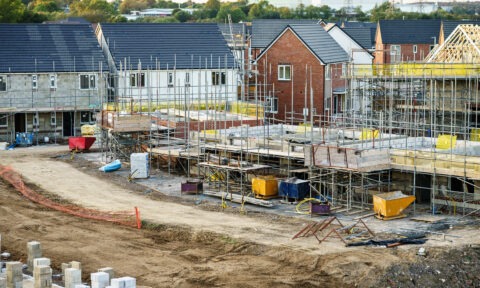Structural Appraisals – Learning from Building Failures
- Course focuses on spotting defects in structures to prevent failures.
- Participants learn classic structural defects in different eras.
- Engineers, architects, planners, and more can benefit from the course.
- Tutor is a Technical Director with extensive experience in building appraisal.
- Participants will understand causes of structural movement and how to prevent collapse.
Overview
The Structural Appraisals Training course focuses on helping engineers and professionals in the UK understand and identify classic structural defects in buildings from different periods. Participants will learn to anticipate major defects, recognize causes of structural movement, and prevent failures. The course, led by an experienced Technical Director, covers various building types and materials through real-life case studies. Intended for engineers, architects, surveyors, and others, the program includes topics like structural surveys, movement causes, and specific period-related issues.
Who should attend
Engineers, Architects, Planners, Building Surveyors, Conservation Officers, Archaeologists, Property Managers, Insurers, Due Diligence Lawyers.
Course Content
Structural Appraisals Training
The vast majority of buildings in the UK outperform the expectations of their designers and builders, lasting longer, and often needing far less maintenance than originally intended. However, dramatic failures do occur. The partial collapses of Ronan Point tower block in 1968, Rock Ferry School gymnasium in 1976, Pipers Row car park in 1997, and Hyde Park Garden Terrace in 2002 are extreme reminders that the fitness for purpose of existing structures needs to be checked from time to time.
In order to spot defects and make an accurate appraisal, Engineers need to know details such as when Woodwool Slabs were used, where the Bookend-Effect might occur, whether HAC Concrete is still a threat, what the symptoms of Snapped-Header brickwork are, and why the Regent Street Disease is still growing.
This course describes what classic structural defects to expect, the symptoms to look for, the principles of repair, and the likely consequences of inaction, by analysing many real-life case studies.
The course will consider:
Georgian, Victorian & 20th Century periods
Traditional low and medium rise structures
Commercial, residential and institutional uses
Vernacular materials: timber, brick and stone
Engineered materials: iron, steel and concrete
Case study worksheets provided for delegate participation
The tutor is a Technical Director of one of the UK’s top ten engineering consultancies, with many years of specialist experience in the appraisal, repair, and development of buildings. The tutor is also a Visiting Lecturer in Structural Movement at the Architectural Association School of Architecture, London and the RICS/College of Estate Management, Reading. His daily work spans residential, commercial, and institutional property, to the continuing care of arguably the greatest church in England, Westminster Abbey. He is also author of many technical works, including “The AJ Guide to Structural Surveys”.
Objectives
By the end of the course, participants should be able to:
Understand how the quality of construction varies through the ages.
Know what classic structural defects to expect in traditional Georgian, Victorian, and 20th century buildings.
Anticipate and allow for hidden major defects.
Understand the seven generic causes of structural movement, and how to deal with them.
Assess when structural problems are serious, and how to avoid structural failure and collapse.
Intended for
Engineers, architects, planners, building surveyors, conservation officers, archaeologists, property managers, insurers, and due diligence lawyers.
Outline Programme
Structural surveys
Causes of structural movement
Georgian and victorian problems
Edwardian and the inter-wars problems
Group exercise
Post war defects
Course duration: 1 Day
Cost: £295 + VAT
Structural Appraisals Training Inverness, Aberdeen, Glasgow, Edinburgh, Dunfermline and other sites throughout the UK including onsite closed company courses are available.



